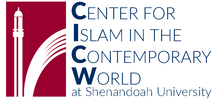|
Increased religious observance, mental health stress, and worries about academic goals
Ermin Sinanović and Amir Durić The Center for Islam in the Contemporary World at Shenandoah University (CICW) and the Muslim Student Life at Syracuse University (MSL) are issuing preliminary results from the survey on the impact of COVID-19 pandemic on the Muslim students in higher education in the United States. The survey was collected from March 30 through April 10, 2020, and was completed by 375 survey takers from 32 US states. This particular report reflects the key findings that have emerged in the survey, followed by concrete recommendations for practitioners who serve Muslim students. A detailed report will be produced in the next couple of weeks. Demographics Out of 375 survey takers, 53 percent were female, while 46 percent were male. As for ethnicity, 35 percent identify as Asian, 32 percent as white, 8.5 percent as Black or African American, and fewer than 1 percent as Hispanic/Latino. The rest chose not to select any offered category. Majority of surveyed students, about 51 percent of students, are enrolled as undergraduates, just over 33 percent as graduate students, while the rest are in community college or different programs. About 16.5 percent of the surveyed students are international, while about 81 percent are US students. MAIN FINDINGS Low confidence in the federal government, higher confidence in local/state governments and Islamic institutions The majority of Muslim students have no confidence in the federal government to effectively respond to Muslim students’ needs in response to the outbreak of the coronavirus / COVID-19 Pandemic, including 85 percent with no or little confidence in the President. These low or no confidence figures are 65 percent for the House of Representatives, and 70 percent for the Senate. In contrast, Muslims students have a much higher confidence in state government (40 percent), their school (56 percent), local mosque (70 percent), national Islamic institutions (55 percent), Muslim chaplaincy at the school (55 percent), and the Muslim Student Association (57 percent). Increased religious observance; higher levels of stress, anxiety, and depression Further, the results show an overall increase in religious practices, with about 40 percent indicating an increase in prayers, and about 28 percent raising their voluntary fast levels. Just over 60 percent of students report an increase in their dhikr (remembrance of God), and about 33 percent reported an increased interest in reading Islamic literature. At the same time, more than 60 percent of students indicated an upsurge in level of stress and anxiety, more than 30 percent reported an increase in depression, while 54 percent evidenced a decrease in physical exercise. Health insurance at risk When it comes to health insurance, 16 percent of students have health insurance through their institution of higher education, while 7 percent have no health insurance at all. These students could be at risk if the school closes, they graduate, or if they can’t afford tuition. Job prospects and academic goals Almost half of the respondents (47 percent) feel that their ability to apply for jobs or internships has been negatively affected by the change in instruction, while about 68 percent of them are worried about the impact of COVID-19 on their academic goals. RECOMMENDATIONS Institutions of Higher Education Connect with Muslim institutions and hire a Muslim chaplain
2) if you don’t have a Muslim Chaplain, now is an excellent time to hire one within your institution, 3) if you have a Muslim Chaplain, reach out and come up with a plan on how to properly serve and assist Muslim students during this Pandemic. Invest in mental health for Muslim students
Address health insurance needs of Muslim students
Have accurate data about Muslim students
Alleviate worries about academic goals and job market
(Muslim) Chaplaincies Be proactive in reaching out to Muslim students and health/wellness centers
Provide Muslim sensitivity training at your institutions
Islamic Institutions Cater to Muslim college students’ needs
Help your local college/university hire a Muslim chaplain
2) Offer assistance and support to their Muslim students, 3) Advocate for Muslim students and ask the institution to bring a Muslim chaplain on board. These results present preliminary critical findings from this survey. Given the findings and urgency of the current situation, our goal has been to provide some guidance and ideas to the practitioners to serve the Muslim student population better during this challenging time. We will publish more information and insights in a full report in early May 2020. … About the Muslim Student Life at Syracuse University The office of Muslim Student Life at Syracuse University (MSL) is about support for Muslim students, faculty, and staff in all religious and spiritual needs for development and growth. It is about accommodation, openness, and understanding - not judgment or restriction. It aims at improving the understanding and representation of Muslim cultures and communities around the world through sharing the universal values of faith and humanity. Our mission is to create an inclusive community and to engage in sincere reflections that result in religious, intellectual, and social growth through educational programs and spiritual guidance based on Islamic principles. NOTE: The authors would like to thank Dr. Mirza Tihić who helped in developing and administering the survey, and assisted in writing this blog.
0 Comments
Leave a Reply. |
AuthorErmin Sinanović is CICW Executive Director; Amir Durić is Muslim Chaplain at Syracuse University. ArchivesCategories |
Contact us
Address: 44160 Scholar Plaza Suite 100
Leesburg, Virginia 20176 Phone number: 540-545-7219 E-mail: [email protected] Shenandoah University web: bit.ly/2S7gWHO |
Follow us on social media
|
|


 RSS Feed
RSS Feed